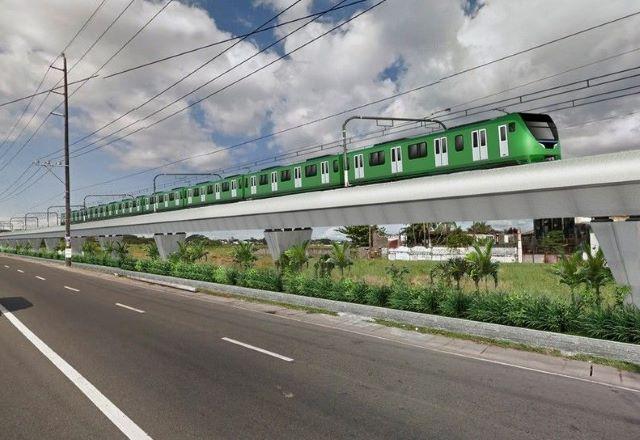DOTr inks P38-B civil works contracts for Malolos-Clark Railway project

The Department of Transportation on Saturday signed two civil works contracts amounting to around P38 billion or roughly $728 million for the Asian Development Bank (ADB)-financed Malolos–Clark Railway Project.
In a virtual signing ceremony, Transportation Undersecretary for Railways Timothy John Batan said first contract package N04 involves the construction of 6.5 kilometers of railway and the underground Clark International Airport station, which is an integrated airport station to the overall masterplan development of the Clark International Airport.
“This station will serve as the terminal station for the Philippines’ first airport express train service which will run at 160 kilometers per hour, allowing for travel between Clark and Makati in under an hour,” Batan said.
The said contract was awarded to the joint venture of Spain’s Acciona Construction Philippines, Inc. and EEI Corporation.
Meanwhile, the contract package N05 involves the construction of 33-hectare Clark Railway Depot.
“This will be the country’s largest railway yard and maintenance facility and together with the yard for the Subic-Clark Railway Project will constitute 60 hectares of depot complex, one of the largest in the region,” Batan said.
“It will be capable of providing high-quality light and heavy train maintenance services to support and ensure reliable operations of the railway,” he added.
The said contract was awarded to South Korea’s POSCO Engineering and Construction Co., Ltd.
In a separate statement, the ADB said the contract signing will jump-start the construction phase of the Malolos-Clark Railway Project and create much-needed jobs as well as boost local economic activity.
For his part, Transportation Secretary Arthur Tugade said the project “means a lot to the Republic of the Philippines, to our countrymen, in terms of making their lives comfortable.”
“I want to send a message to the Filipino people that we have never stopped working, we have kept the ball rolling to deliver the much-needed transport infrastructure projects of the country. This is our own way of saying ‘Build, Build, Build continues,” Tugade noted.
ADB Director General for Southeast Asia Ramesh Subramaniam said that the signing of the two civil works contracts for the Malolos–Clark Railway Project is a milestone for the Philippine government’s landmark Build, Build, Build infrastructure development program.
“ADB remains strongly committed to working with the government, development partners, and the private sector to deliver infrastructure for all Filipinos,” Subramaniam said.
“The Malolos–Clark Railway is expected to be completed by 2024. When the entire North–South Commuter Railway system is operational, we expect up to one million passengers will ride the train daily on this modern, safe, and efficient system by 2040,” the ADB official added.
The Malolos–Clark Railway Project is part of the 163-kilometer North–South Commuter Railway Project, which is aimed to ease road congestion in the Philippine capital and its nearby provinces and reduce annual traffic-related economic costs, totaling $18 billion in Metro Manila alone.
The project will cut the travel time between Clark and Manila from two to three hours by bus to one hour by train, while reducing greenhouse gas emissions by more than 60,000 tons annually, according to the ADB.
Also, project will create about 24,000 local construction jobs in the next three years and 14,000 more jobs related to the railway system’s operation, the multilateral lender said.
It will lead to larger, indirect employment and economic benefits to local businesses, such as suppliers of raw materials, which in turn will create more jobs, it said.
The Malolos-Clark Railway Project is financed by the ADB through a project loan facility amounting to $2.75 billion.
On the other hand, the Japan International Cooperation Agency, which is co-financing the project, will provide up to $2 billion in additional funding for the rolling stock and railway systems. —LBG, GMA News



